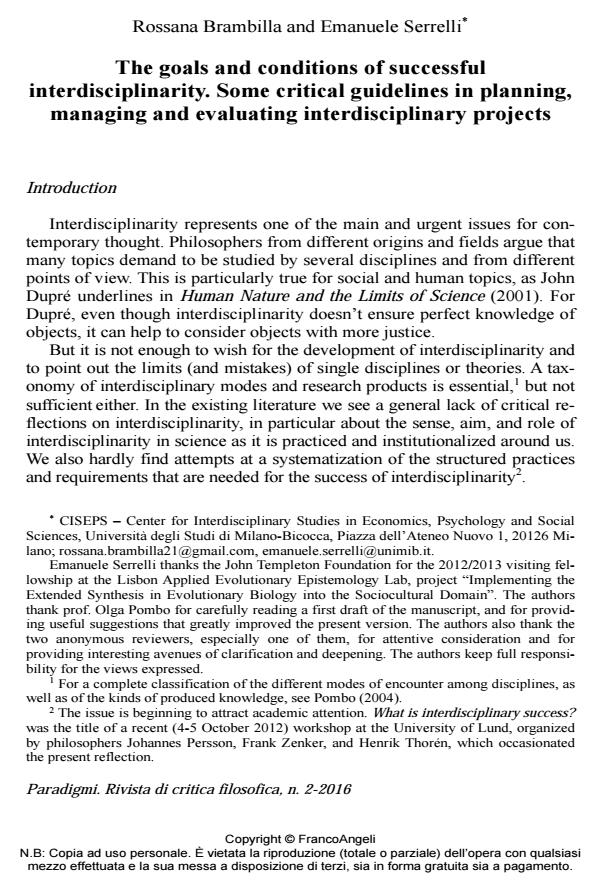The Goals and Conditions of Successful Interdisciplinarity. Some Critical Guidelines in Planning, Managing and Evaluating Interdisciplinary Projects
Journal title PARADIGMI
Author/s Rossana Brambilla, Emanuele Serrelli
Publishing Year 2016 Issue 2016/2
Language English Pages 69 P. 151-169 File size 197 KB
DOI 10.3280/PARA2016-002012
DOI is like a bar code for intellectual property: to have more infomation
click here
Below, you can see the article first page
If you want to buy this article in PDF format, you can do it, following the instructions to buy download credits

FrancoAngeli is member of Publishers International Linking Association, Inc (PILA), a not-for-profit association which run the CrossRef service enabling links to and from online scholarly content.
In questa analisi concettuale sosteniamo la necessità di riflettere maggiormente sugli obiettivi e sulle condizioni dell’interdisciplinarità. Il "surplus di conoscenza" che da essa è atteso dovrebbe essere inteso come produzione di nuovi modi di pensare che lasciano tracce risconoscibili nelle discipline coinvolte. Nel pianificare e valutare progetti interdisciplinari sono importanti specifiche condizioni abilitanti: un oggetto, un obiettivo, pratiche di condivisione e la capacità dei ricercatori di adottare determinati atteggiamenti sistematicamente e con convinzione. La finalità ultima dell’interdisciplinarità - trasformare società e cultura - si lega al significato e agli effetti della ricerca, nonché al posto della scienza nella società.
Keywords: Education, Interdisciplinarity, Pedagogy, Philosophy of science, Research, Social organization of knowledge.
Rossana Brambilla, Emanuele Serrelli, The goals and conditions of successful interdisciplinarity. Some critical guidelines in planning, managing and evaluating interdisciplinary projects in "PARADIGMI" 2/2016, pp 151-169, DOI: 10.3280/PARA2016-002012